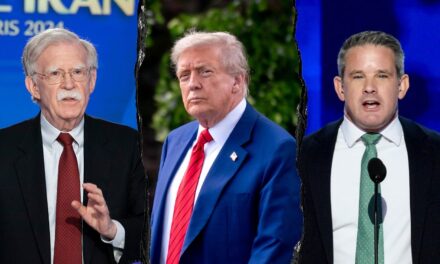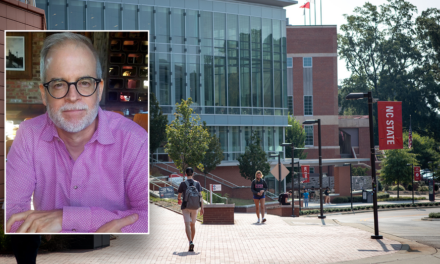A pro-life journalist recently reported being assaulted in a public setting, attributing the violence to what he describes as the inflammatory rhetoric originating from members of the Democratic Party. This incident has ignited a debate surrounding political discourse and its consequences on citizen safety.
The journalist, who wishes to remain anonymous, recounted the event that unfolded late last week while he was conducting interviews for a piece focused on pro-life activism in urban areas. He stated that he was approached by a group of individuals who appeared hostile upon recognizing him as a pro-life advocate. According to his account, the situation escalated quickly, culminating in an altercation that left him injured and shaken.
In the immediate aftermath of the assault, the journalist took to social media to express his concerns about the rising hostility directed towards individuals who hold conservative views, particularly on controversial issues such as abortion. He asserted that the language used by certain politicians and public figures creates an environment ripe for violence against those who dissent from the mainstream liberal ideology.
“Every day, I see rhetoric that vilifies people like me simply for expressing our beliefs,” he wrote, emphasizing that political leaders have a responsibility to promote civil discourse rather than contribute to a climate of fear and aggression. His statements resonate with a segment of the population who feel increasingly threatened for their viewpoints.
This incident has sparked an intense dialogue, both online and in traditional media, regarding the intersection of political discourse and public safety. Proponents of the journalist’s viewpoint argue that the contemporary political landscape, particularly in light of recent vital elections, has witnessed a significant shift towards hostility and aggression in rhetoric, especially from factions of the Democratic Party.
Critics, however, contend that blaming political discourse for individual acts of violence is overly simplistic. They argue that while rhetoric can influence public sentiment, it is ultimately the actions of individuals that lead to violence and harm. The complexities surrounding personal responsibility, mental health, and socio-economic factors contribute to this narrative. This belief maintains that attributing blame solely to politicians undermines the personal agency involved in committing an act of violence.
The journalist’s assault adds to a string of incidents that highlight the growing divide in American politics. As tensions rise surrounding issues of abortion, gun rights, and various other controversial subjects, there has been an uptick in behavior that demonstrates heightened animosity. This evolving landscape is not limited to physical confrontations but extends to threats, harassment, and a general atmosphere of fear among individuals expressing dissenting opinions.
Additionally, the pro-life community has expressed concerns regarding safety at public events and discussions. Many advocates now find themselves facing bolder opposition when attending rallies or forums where their viewpoints are discussed, amplifying fears about potential violence. This creates a chilling effect, where individuals hesitate to voice their beliefs out of fear of repercussion.
The incident has led to calls from various organizations advocating for free speech and safety to encourage dialogue about the necessity of respectful discourse while also addressing issues of safety for individuals engaged in activism. These organizations assert that allowing for a diverse set of opinions is vital for a democratic society, but ensuring that those expressions can occur without fear of retribution or violence is equally important.
Some Democratic lawmakers have responded to the allegations of creating a hostile environment by asserting the importance of accountability in political discourse. They urge their colleagues to think critically about the language used in speeches and social media communications. They emphasize that while passionate discussions about political beliefs are common, they should not translate into a culture of harassment or violence.
During the aftermath of the incident, many political commentators and analysts weighed in on the effects of rhetoric in shaping public behavior. Some argue that certain leaders perpetuate a narrative that celebrates confrontation over constructive debates, leading to divisions that embolden individuals to act violently when they encounter opposing views.
This discussion extends beyond just this single incident, as analysts point out the broader implications for American society. Engagement in politically charged discussions can foster not only debate but also division, which in itself can have detrimental effects on social cohesion. If individuals feel constantly under threat for their opinions, it jeopardizes the democratic principle of open dialogue.
As public outrage grows over incidents of violence linked to political disagreements, discussions must also encompass the fundamental issue of mental health and violence in society. Experts in psychology argue that while rhetoric can enhance feelings of animosity, mental health issues can play an equally critical role in turning disagreement into violence. Addressing these underlying issues may provide a more comprehensive solution to mitigating violence rather than solely focusing on political rhetoric.
Moving forward, there is a consensus among many political observers that a revamped approach to political dialogue is imperative. Emphasizing respect and understanding, even amid disagreement, could help create an environment that promotes free expression while curbing the potential for violence. Efforts must be made across the political spectrum to reinforce the principle that while differing views can coexist, aggression and violence must be rejected at all costs.
As we continue to evaluate the implications of this incident on political discourse, many voices express hope that lessons learned will pave the way for an improved atmosphere for discussions and debates about issues that matter profoundly to the populace. The safety and dignity of all individuals, regardless of their convictions, should be regarded as fundamental rights, reinforcing a commitment to democracy that champions diverse opinions while promoting peaceful engagement.
In the wake of the attack on the pro-life journalist, a renewed focus prompts society to consider how public figures can better foster a culture of disagreement that does not lead to violence. The resolution of these concerns may take time, but as the national conversation evolves, it can ultimately lead to greater understanding and a reduced potential for animosity among differing perspectives. The enduring principle remains that constructive conversation should be the aim of all political engagement, regardless of the topic at hand.
As more individuals come forward to share their experiences of hostility while advocating for controversial causes, the call for a kinder and more respectful political discourse grows louder. The incidents surrounding individuals like the pro-life journalist serve as reminders of the real-world implications of words and how the narratives we create through our language can shape the environment in which we live. This ongoing dialogue may still be in its infancy, but it reflects a pressing need for change, one born from shared experiences of fear and vulnerability.
































